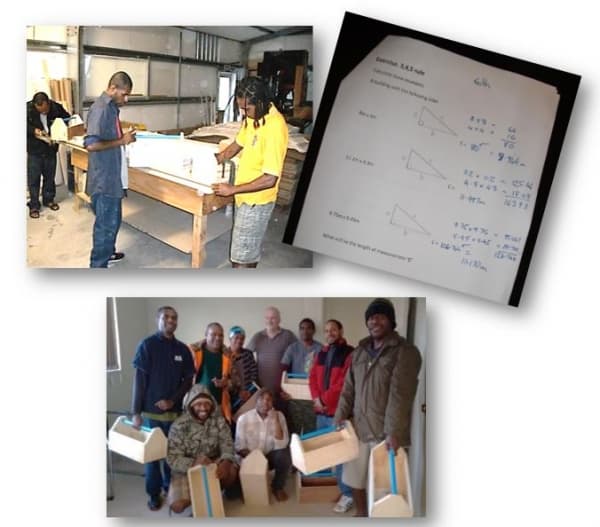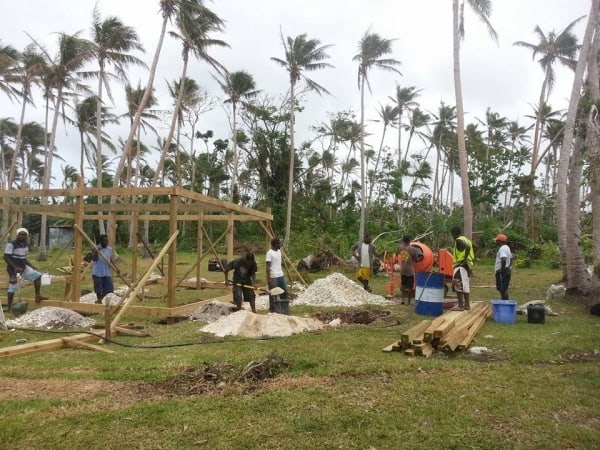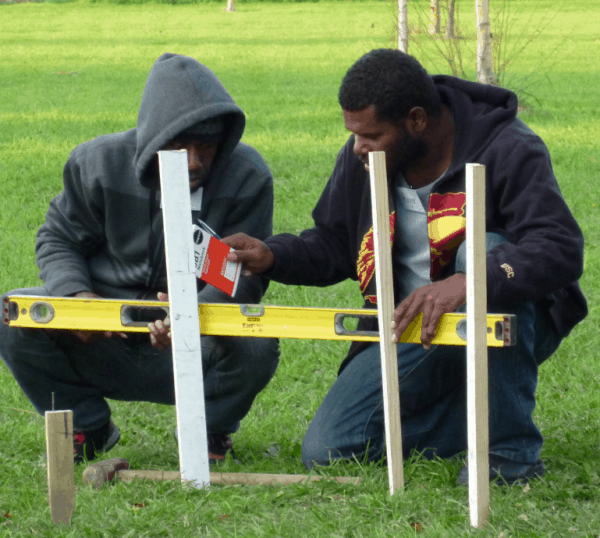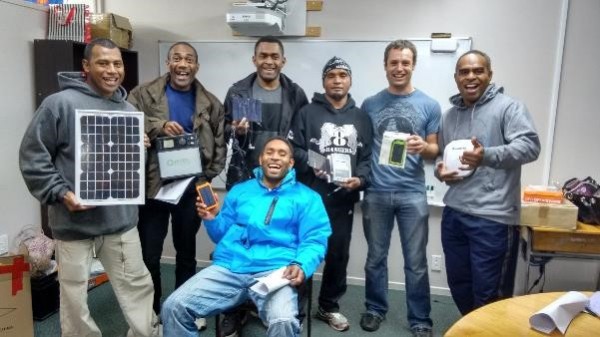Sandy Scarrow and Karen Carter, Fruition Horticulture (First seen in The Orchardist, July 2016)
The Recognised Seasonal Employer (RSE) scheme is promoted as a partnership programme with a clear “win:win” for all those involved. It is easy to see the benefits the wider horticultural industry receives from being able to use RSE workers to prune, pick and pack the crops we grow. Beyond the money that the workers can earn for their families, it is timely to provide an update of the training and knowledge RSE workers are able to gain by attending Vakameasina programmes that they can take home for their side of the ‘win’.
To recap Vakameasina is a programme focusing on English language literacy, numeracy, financial, digital literacy and life skills funded by the New Zealand Aid programme of the Ministry of Foreign Affairs and Trade. The programme focuses on topics selected by the learners and/or their employers that will improve the workers’ life in New Zealand and back home. Literacy and numeracy is embedded into whatever topic is taught. Fruition Horticulture has the contract to deliver this programme throughout New Zealand.
Beyond core modules focused on food and nutrition, health and safety, money management and digital technology, workers are asking for more knowledge and skills that will improve their life back home.
It seems that our Pacific nations have taken turns in catastrophic events of late and many have to rebuild as their homelands have been devastated by hurricanes, floods and droughts. This rebuild has been a focus, particularly for the NiVan and Fijian workers.
Around the seven regions within New Zealand where Vakameasina programmes are currently delivered, special training programmes are being constructed to meet the ongoing and changing needs of the RSE workers who enter our classrooms. In the Bay of Plenty a woodwork programme is being delivered in Vincent House which has the facilities and equipment to produce wood products, at a factory level if necessary.
Basic building skills are also being included in programmes in other regions, as currently our learners have no need to learn to use this much woodwork technology. This may change in the future but it is great to put our students in a workshop and remind them of the importance of health and safety in every environment they operate within.
Whilst the learners did not use the industrial equipment they enjoyed drafting a template and using some basic hand held power tools to make themselves a toolbox. They also learned how to set out set out footings and building foundations, adapt buckets and hoses as water level tools, and learn other useful basic building techniques that they can apply at home.
This type of course also appealed to one of the women who elected to leave the women’s group and join the men building. The programme provided a fun way to improve everyone’s maths skills. Best of all the learners said that “Because of the course we can make a house foundation; we know how to build a house that will be strong”.

“The learners talked about making some tool boxes to sell in the markets back home”
A tutor from Hawkes Bay who taught building skills was later able to volunteer to go to Vanuatu to put up some new buildings. It was rewarding for the tutor to see the skills taught during Vakameasina being applied to work they were doing by some of his former students back home.


“Andrew’s crew hard at work in Vanuatu”
Another key area that Vakameasina is helping RSE workers in this partnership approach is to gain skills and knowledge with solar energy. The money the RSEs earn is precious, so they want to spend it wisely and purchasing the right solar equipment to meet their needs can be confusing and expensive.
Overtime, Vakameasina tutors have heard that workers complain their equipment no longer works, has been lost or destroyed and/or doesn’t meet their needs. In their investigations to help they have met many solar practitioners and retailers who have been very helpful in providing good advice, demonstrate the latest products and give discounts to assist the RSE workers to do more with their money.
Through contact with Vakameasina, one company – Hitek Solar NZ (Hitek Systems Ltd) has even gone so far as to produce portable solar products specifically with the RSEs needs in mind. Products range from a 7kg portable solar generator (ie 400w unit with built-in inverter, charge controller, battery, USB charging ports and LCD screen) to hand held USB solar power battery banks, for running 1-2 lights or charging phones, small enough to fit in your pocket.
These products are designed so that next time there is a disaster not all will be lost, as they can be picked up and taken to safety. Additionally, the products will last longer as units have built in components which means there are no special skills required to set up systems and little if any maintenance required for sealed units.
This does not mean that understanding the basics of solar power and system maintenance is not covered in programmes. It is just that it is useful to provide a range of options as help and replacement components are not always readily available when they return home for those who live in more isolated areas.
The director of Hitek Solar NZ (Hitek Systems Ltd), Steve McMechan, said that working with the RSE workers really made him think about more useful ways to help the RSEs have reliable and cost effective solar systems. For him, it made good business sense to better meet their needs.
Some Vakameasina students from Vanuatu have been going to additional training with his company to learn how to set up and physically wire up small systems. Both the students and Steve are hopeful they can use these additional skills to set themselves up in a small installation business when they go home. We are told there is a need for quality services in Vanuatu. Steve on the other hand would enjoy having product distributors that he had trained and trusts back in the islands.

Other ways in which Vakameasina has proven helpful back home is in the area of communication skills. In our leadership programme we have taught topics such as conflict management and effective communication. We have had third party feedback from people in the Islands who have witnessed people using these techniques to solve problems. One Australia researcher in Vanuatu made the following comment, by email, to a colleague in New Zealand.
“The strengthening seasonal workers families groups came from the concerns of workers in regards to their wives. It began with the group meeting and supporting each other while their husbands were absent – growing into small businesses to help financially support each other. Now it works as an advocacy group when relationships are feeling strained and recently started assisting workers with reintegration, financial planning etc. Utilising some of the skills that have also been transferred through Vakameasina and other sources. “
Rochelle Bailey, Research Fellow, The Australian National University
There are many examples where the partnership between the RSE scheme and the horticultural industry continue to grow. Even if the partnership is not directly evident the exposure of RSEs to the New Zealand way of life through their employment, life outside of work and their Vakameasina classes continues to provide a constructive way of giving thanks for their contribution.
At the beginning of each Vakameasina course tutors ask the learners what they want to learn. They often state topic areas but are not able to always articulate what would really help them the most both in New Zealand and at home. Many employers visit the RSE’s homelands. Fruition Horticulture would be really interested to hear if you have any ideas for inclusion in our provision of programmes, to make our contribution to the partnership relationship even more valuable. Please contact us if you have any thoughts or comments.
The Recognised Seasonal Employer (RSE) scheme is promoted as a partnership programme with a clear “win:win” for all those involved. It is easy to see the benefits the wider horticultural industry receives from being able to use RSE workers to prune, pick and pack the crops we grow. Beyond the money that the workers can earn for their families, it is timely to provide an update of the training and knowledge RSE workers are able to gain by attending Vakameasina programmes that they can take home for their side of the ‘win’.
To recap Vakameasina is a programme focusing on English language literacy, numeracy, financial, digital literacy and life skills funded by the New Zealand Aid programme of the Ministry of Foreign Affairs and Trade. The programme focuses on topics selected by the learners and/or their employers that will improve the workers’ life in New Zealand and back home. Literacy and numeracy is embedded into whatever topic is taught. Fruition Horticulture has the contract to deliver this programme throughout New Zealand.
Beyond core modules focused on food and nutrition, health and safety, money management and digital technology, workers are asking for more knowledge and skills that will improve their life back home.
It seems that our Pacific nations have taken turns in catastrophic events of late and many have to rebuild as their homelands have been devastated by hurricanes, floods and droughts. This rebuild has been a focus, particularly for the NiVan and Fijian workers.
Around the seven regions within New Zealand where Vakameasina programmes are currently delivered, special training programmes are being constructed to meet the ongoing and changing needs of the RSE workers who enter our classrooms. In the Bay of Plenty a woodwork programme is being delivered in Vincent House which has the facilities and equipment to produce wood products, at a factory level if necessary.
Basic building skills are also being included in programmes in other regions, as currently our learners have no need to learn to use this much woodwork technology. This may change in the future but it is great to put our students in a workshop and remind them of the importance of health and safety in every environment they operate within.
Whilst the learners did not use the industrial equipment they enjoyed drafting a template and using some basic hand held power tools to make themselves a toolbox. They also learned how to set out set out footings and building foundations, adapt buckets and hoses as water level tools, and learn other useful basic building techniques that they can apply at home.
This type of course also appealed to one of the women who elected to leave the women’s group and join the men building. The programme provided a fun way to improve everyone’s maths skills. Best of all the learners said that “Because of the course we can make a house foundation; we know how to build a house that will be strong”